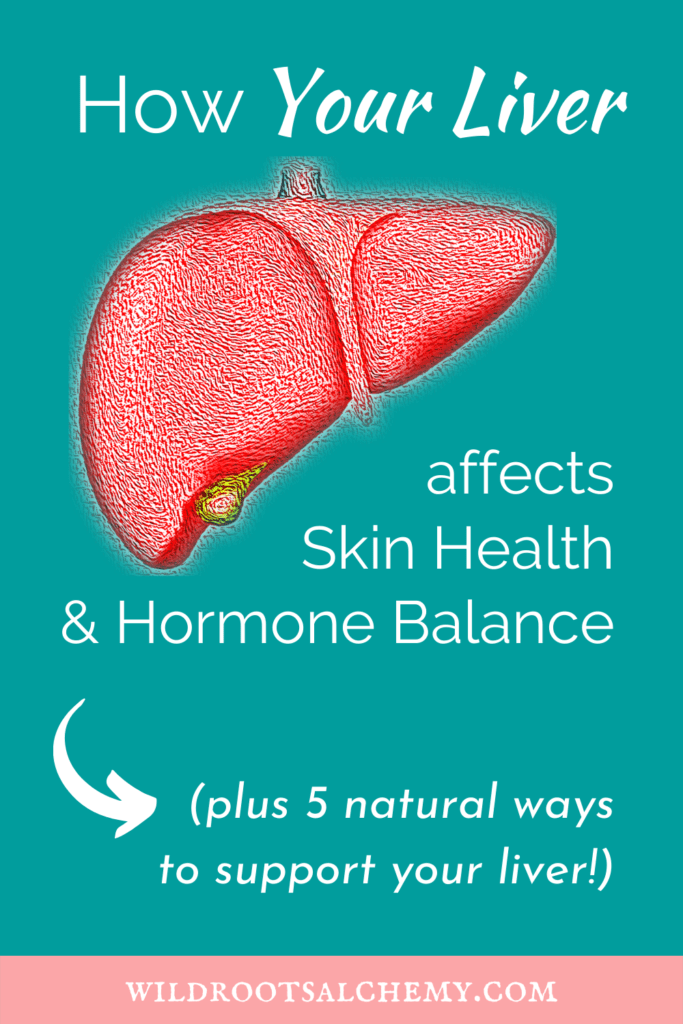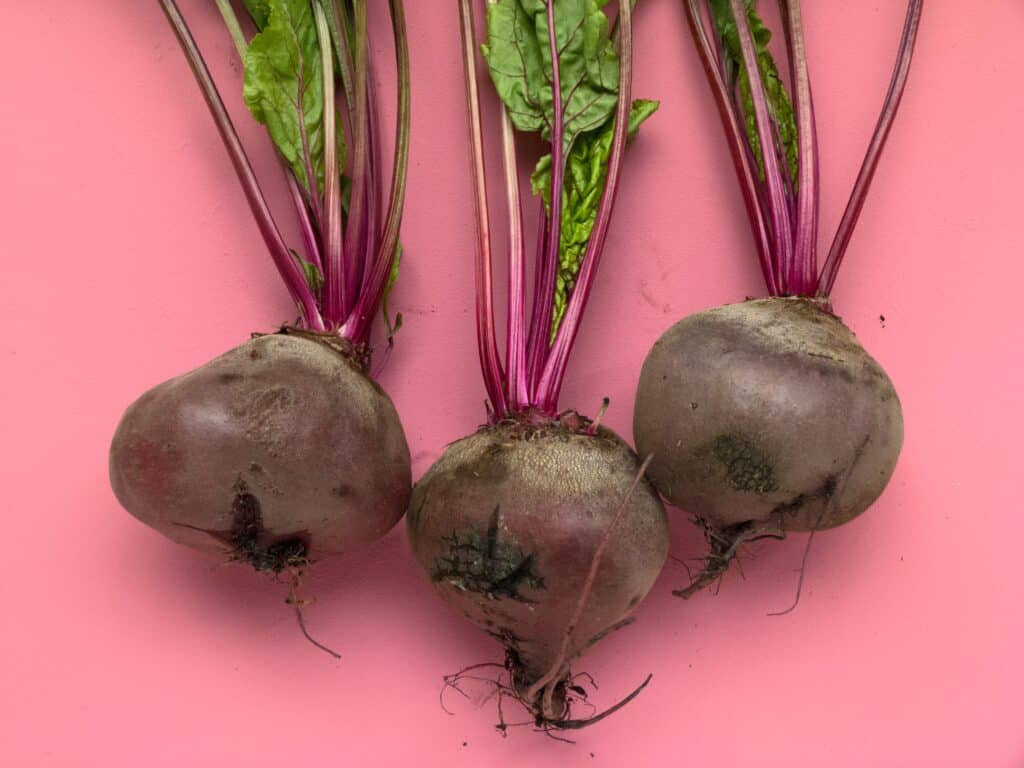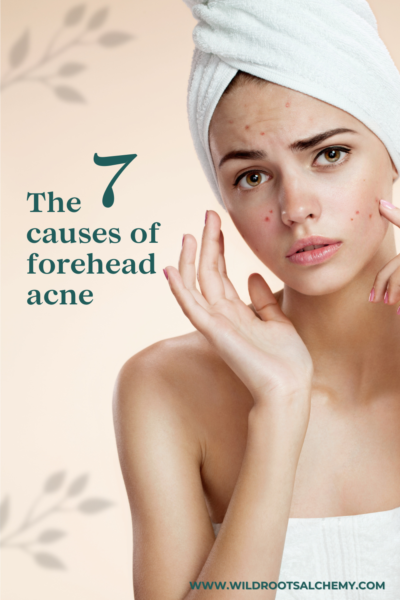
As one of your primary emunctories (or organs of elimination), your liver plays a major role in your health! (Check out my previous post for an introduction to your emunctories.)
Your liver is responsible for all major aspects of metabolism, including blood sugar, protein, and fat metabolism. As an emunctory, the liver is also the primary organ through which all toxins get filtered, metabolized, and detoxified.
Your liver not only metabolizes your own endogenously-produced toxins (i.e. waste products that are natural by-products of cellular metabolism), but it has to detoxify every foreign substance that makes it’s way into your bloodstream, including medications, birth control, alcohol, toxic chemicals, and environmental pollutants. As you can imagine, our liver is faced with a ton of external toxicity in our modern world!
How Poor Liver Function Leads to Symptoms
If your liver is bogged down with extra wastes or isn’t functioning up to par, this means that more toxins will be circulating throughout your body. This increases your body’s toxic load, creating an enhanced immune response and systemic inflammation. This can look like allergies, musculoskeletal inflammation, skin conditions like acne and rashes, brain fog, and a host of other symptoms.
Extra toxins and wastes place a huge burden on your liver! Over time, these toxins start to accumulate and your body will try to eliminate these toxins through other routes, such as through your skin—leading to symptoms like itchiness, dry skin, eczema, acne, or rashes.
Your Liver & Its Role in Hormonal Balance & Skin Health
Your liver makes bile, which is then stored in and secreted by your gallbladder to help digest and assimilate fat and fat-soluble vitamins from your diet. Your liver also stores these fat-soluble vitamins (A, D, E, and K), which are essential for skin health as well as aspects of hormone metabolism.
Your liver also stores water-soluble vitamin B-12: a necessary vitamin for methylation, detoxification pathways, and hormone synthesis.
Disruption in your liver function due to aberrant metabolism or toxicity can lead to an inability to properly absorb and store these essential nutrients.
Your Liver & Your Emotions
Did you know that the liver is associated with anger and irritability in Chinese medicine? I’ve seen this many times clinically in cases of liver dysfunction!
Women with sluggish liver function tend to experience bouts of anger or mood swings, especially around times of hormonal fluctuations. This is typically seen with conditions like PMS, as these symptoms tend to resolve once liver function is addressed.
A bit about emotions as an emunctory (or route of elimination)
Our emotions can be seen as a psychospiritual emunctory. We use our “e-motions” (“energy” in “motion”) to move through feeling states and eliminate toxic psychological accumulations. Negative emotions are a way that our bodies and our spirits communicate their discomfort, but once we express these psychological states in the physical realm, we’re often able to move through them, eliminate psychological toxicity, and restore psychospiritual balance.
A Naturopathic Approach to Optimizing Liver Function

1) Foundations: Diet and Lifestyle
I know it sounds simple, but the benefits of a healthy diet and a healthy lifestyle cannot be underestimated when it comes to liver health and supporting your emunctories!
Eating an organic, non-GMO diet as often as possible prevents a large amount of toxic exposure via ingested pesticides, insecticides, and herbicides. When you eat conventionally-grown food that has been sprayed with chemicals like glyphosate, your liver has to work hard to process and eliminate these chemicals.
We are also exposed to a huge number of chemicals through our water supply that burden your liver and other eliminatory pathways. Invest in a high-quality water filter to remove a majority of these toxins.
As much as possible, reduce your exposure to environmental toxins like xenoestrogens, which are found in hormonal birth control, plastic, conventional cleaning products, conventional meat and dairy products, non-stick cookware, and conventional skincare and beauty products. These foreign synthetic compounds not only have negative estrogen-like effects in your body and disrupt your hormonal system, but they tax your liver and its ability to properly detoxify.
Avoid medications like acetaminophen (Tylenol) that are known liver toxins. Remember that all medications must ultimately be metabolized by your liver, so be conscious of your prescription and over-the-counter medication intake. Reduce your alcohol consumption since it also negatively impacts the health of your liver.
Reducing your exposure to liver toxins will go a long way in protecting your liver health and optimizing its function.
2) Eat Liver-Loving Foods
Food-as-medicine tip! If you really want to show your liver some love, eat foods that have been shown to support liver function.
Some liver-loving foods include:
- Cruciferous vegetables (broccoli, kale, cauliflower, bok choy, cabbage, Brussels sprouts)
- Beets
- Leafy greens
- Artichoke
- Garlic and onions
- Lemons (and other foods rich in vitamin C)
3) Liver-Loving Practices
One of my favorite ways to care for my liver is to do castor oil packs.
Now often these involve a messy ordeal of soaking a cloth in castor oil, applying it to your abdomen, wrapping yourself up, and adding a heating pack. You can definitely do all that—it’s very effective! Yet I like the simple method of just rubbing about a quarter-sized amount of castor oil over your abdomen, focusing on the area of your liver (which sits just underneath the right side of your ribcage).
Topical castor oil helps stimulate circulation to the liver, reduce inflammation, and enhance your body’s eliminatory processes. Applying castor oil before bed or using a castor oil pack up to three to five times per week can be incredibly helpful.
Another often overlooked yet simple method is deep, diaphragmatic breathing. Breathing deeply helps bring down the diaphragm, which then pushes down on the liver, like a gentle massage! This motion helps stimulate blood and bile flow through the liver.
Diaphragmatic breathing also stimulates the vagus nerve, promoting parasympathetic nervous system activity which optimizes digestion, metabolism, and our response to stress.
4) Plant Medicine for the Liver
Now onto one of my favorite topics: plant medicine! As an herbalist, I love working with plant medicine to support the liver. Yet even so, it’s important to remember the significance of the foundational practices I discussed above. While it can be incredibly effective, herbal medicine cannot replace the importance of a healthy diet and avoidance of environmental toxins when it comes to liver health.
With that being said, there are a great deal of plant allies to support liver health! These plants are often categorized as one or more of the following:
- Hepatic: meaning the plant has an affinity to the liver
- Hepatoprotective: protects liver cells against toxins
- Cholagogue: a plant that stimulates bile production
- Bitter: a category based on the taste of the plant (bitter plants stimulate the digestive system as a whole by stimulating the release of stomach acid, bile, and digestive enzymes)
- Alterative: a general term for improving metabolic functions, detoxification, and elimination (alterative plants tend to work on the body as a whole but many have an affinity to certain organs, like the liver)
When it comes to a sluggish liver, hormonal imbalances, and skin conditions like acne, here are some of my favorite plant allies to work with:
Taraxacum officinale (Dandelion root): a gentle hepatic bitter and alterative
Arctium lappa (Burdock root): a.k.a. “gobo root”, a gentle hepatic bitter and alterative (one of my go-to herbs for acne)
Rumex crispus (Yellow Dock root): a bitter alterative with an affinity to the liver and large intestine
Mahonia aquifolium (Oregon Grape root): a bitter hepatic alterative that is best for dry, scaly skin conditions and acne that is highly correlated with blood sugar dysregulation
Schisandra chinensis (Schisandra berry): a hepatoprotective adaptogen (stress-modulating herb); helpful for women with hormonal-induced mood swings and fatigue
Silybum marianum (Milk Thistle seed): a bitter hepatoprotective cholagogue; protects the liver, promotes regeneration of liver cells, and promotes bile flow
Check out my liver detox tea recipe here! It includes several of the herbs listed above.
5) Natural Liver Support Supplements
When the liver needs some serious support, I’ll sometimes turn to supplements. However, food as medicine and herbs are often all that’s needed for a sluggish liver, but sometimes targeted supplements can be useful for short periods of time for that extra support.
There are two main supplements that I will consider depending on the person: NAC and glutathione.
NAC (N-acetylcysteine) is a precursor to glutathione. Glutathione is an essential antioxidant that is necessary for certain detoxification pathways in the liver, turning fat-soluble toxins into water-soluble wastes that can be excreted via bile, urine, stool, or sweat. NAC can help protect your liver and other tissues in your body from environmental pollutants and toxins.
Glutathione supplementation is another way to directly increase your body’s stores of this essential antioxidant.
Check out my Favorites page on my online medicinary if you’re interested in getting 15% off of these products!
Questions? Ask below in the comments! 🙂
This post is from a series of articles about your emunctories. Check out my introductory post here, and stay tuned for posts about how to support your other emunctories: kidneys, colon, lungs, lymphatics, and skin!
Disclaimer: Some of the links to products in this article are affiliate links. I make a small commission off of the sale at no additional cost to you. Thank you for helping to support my small business!





